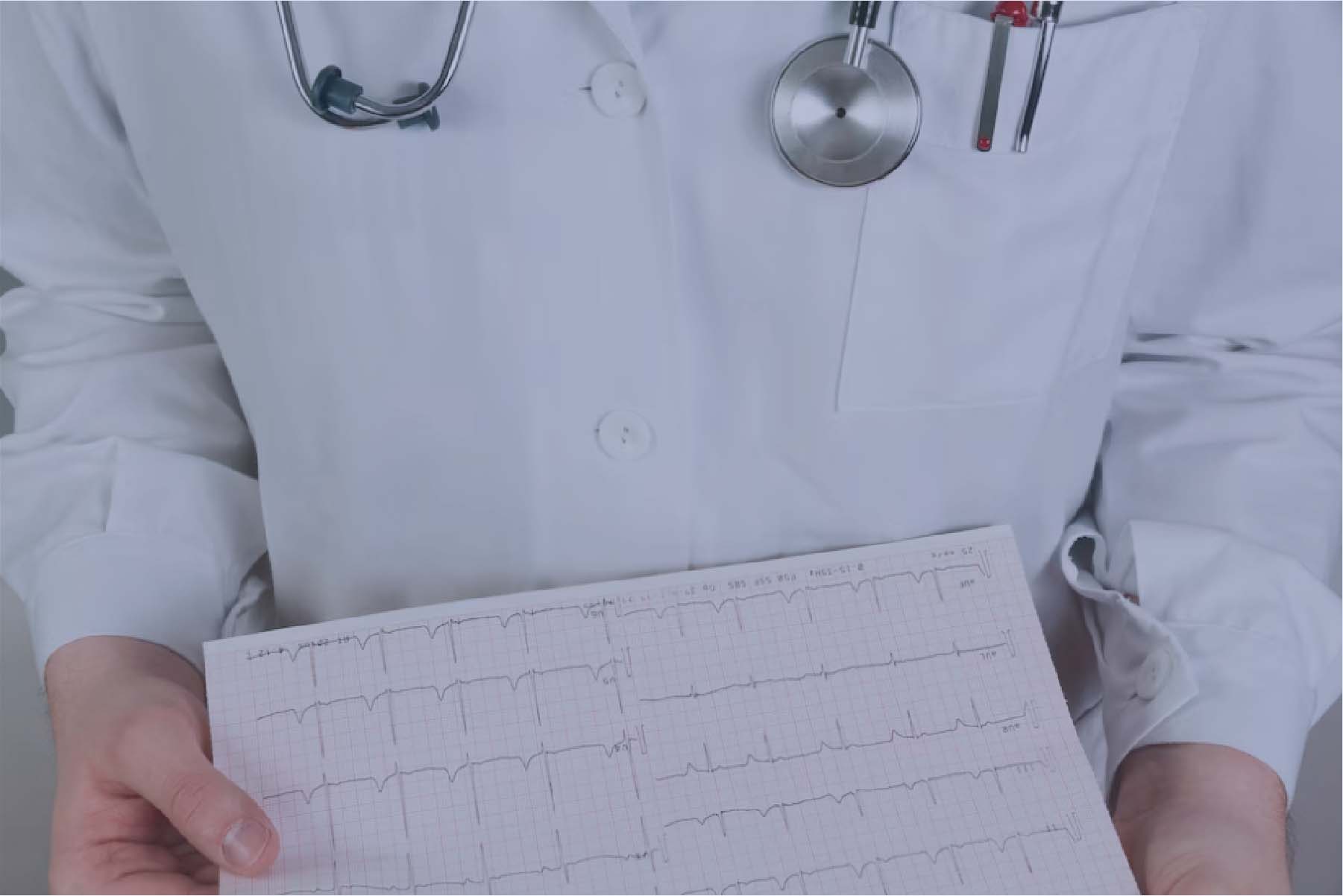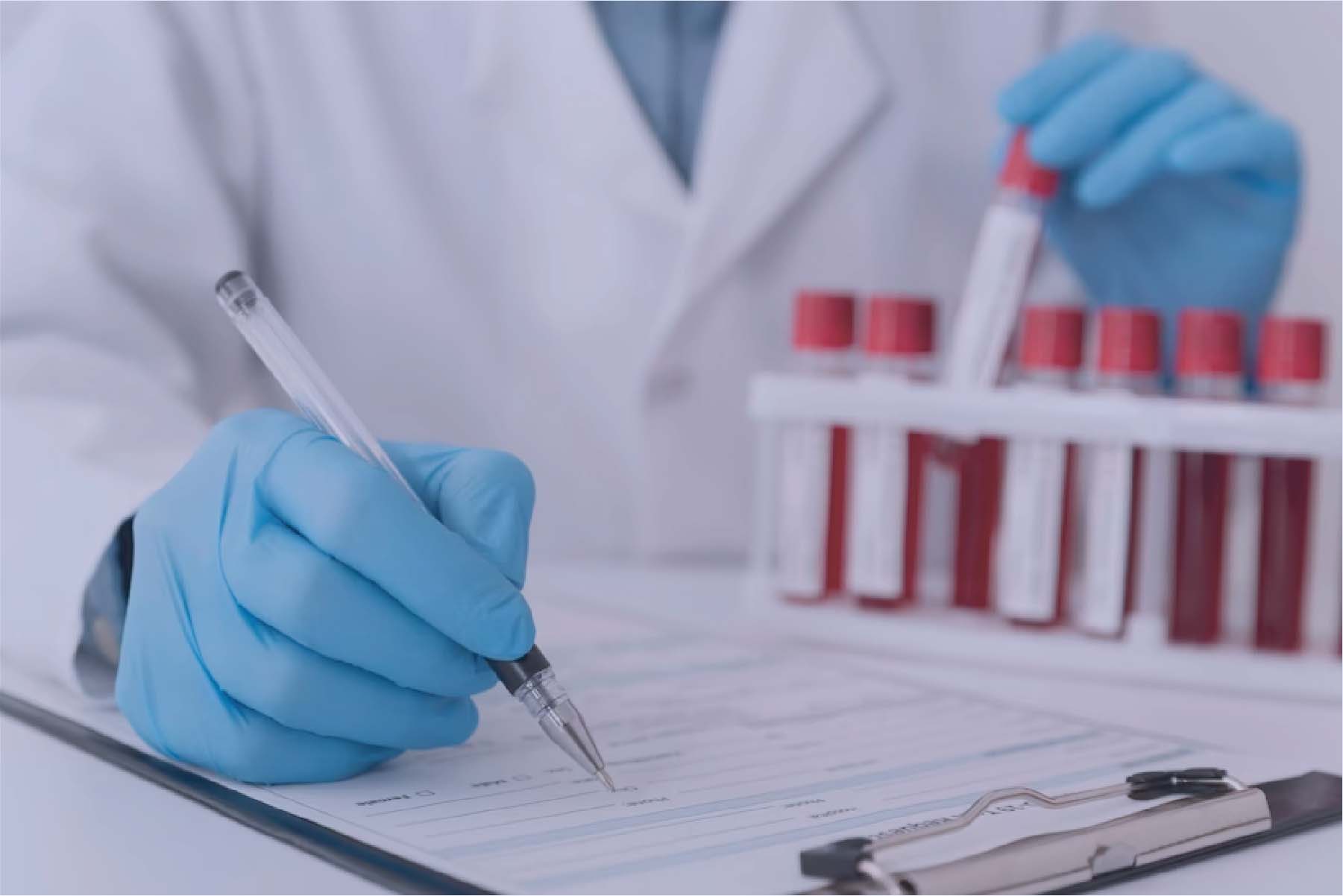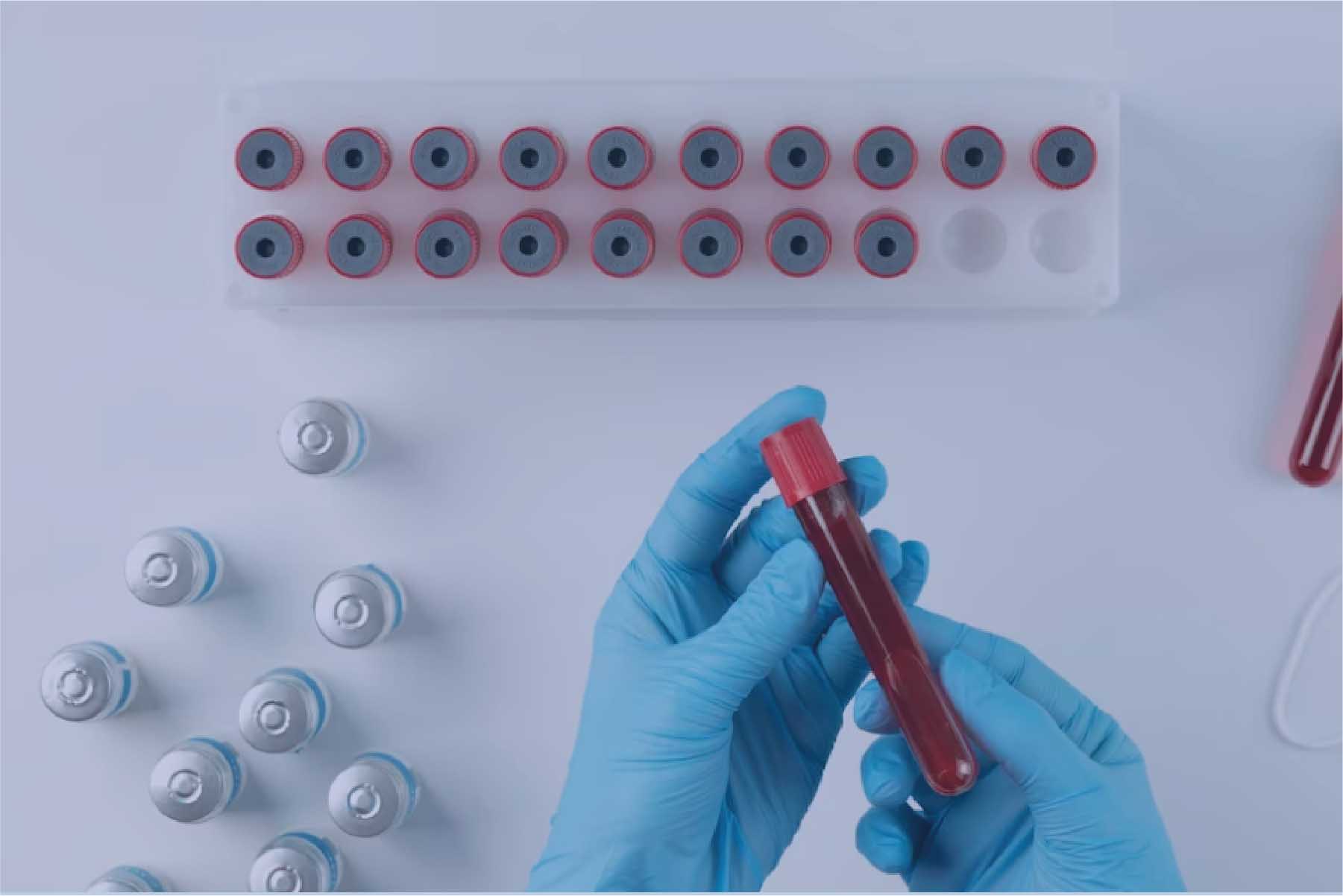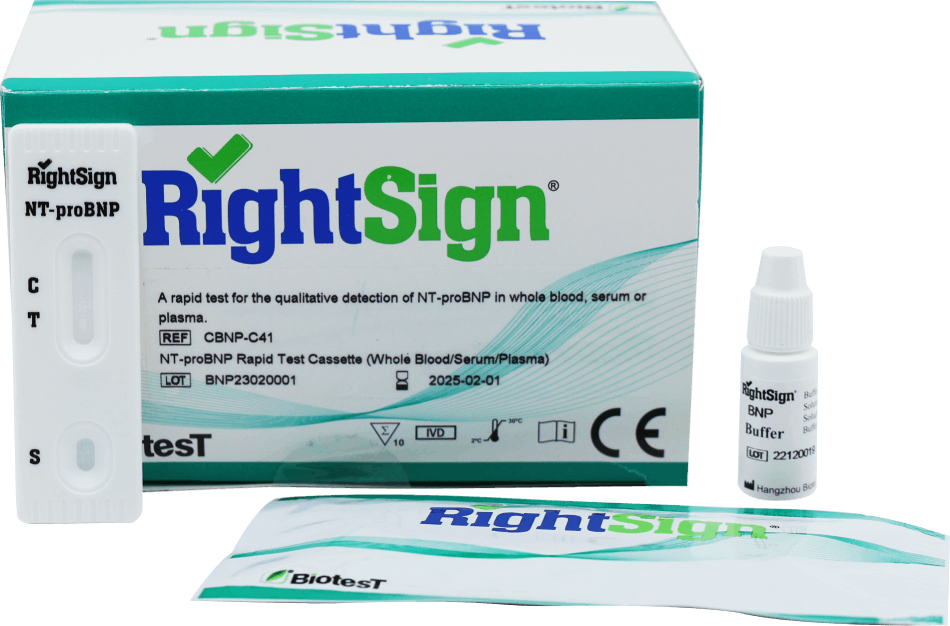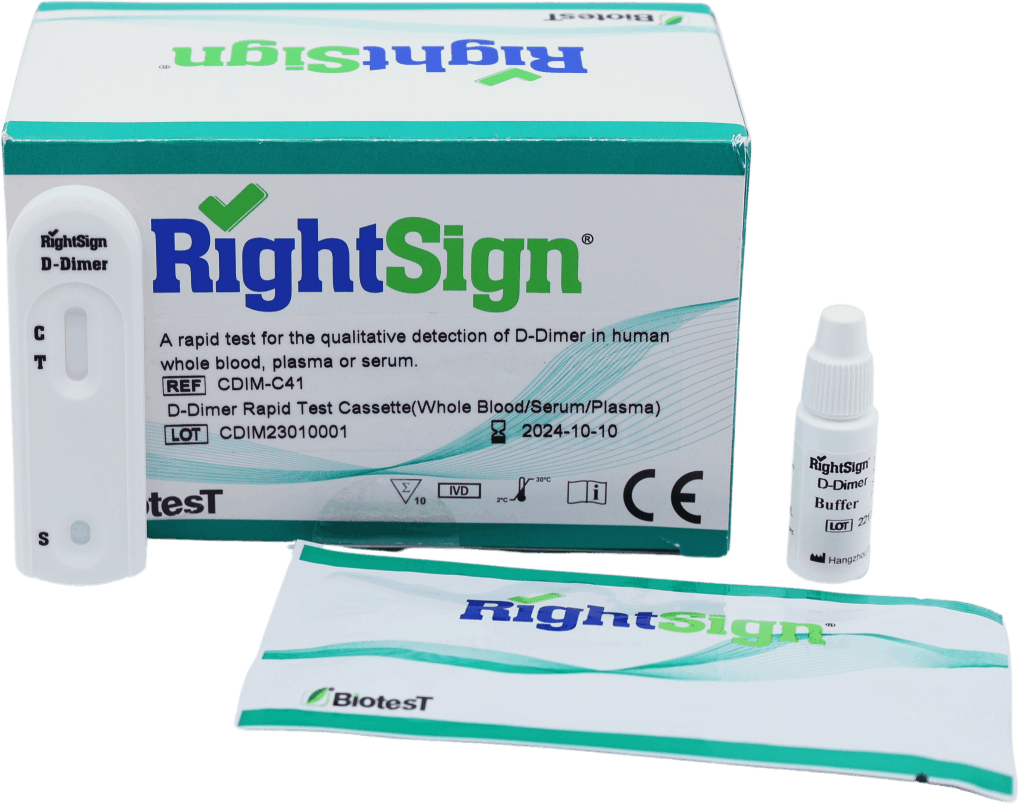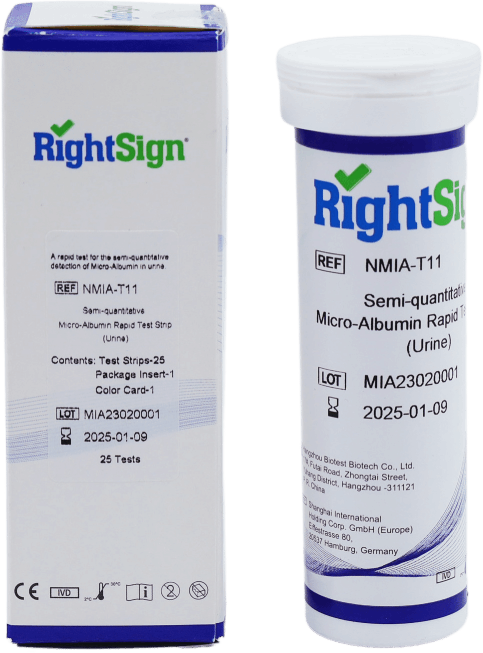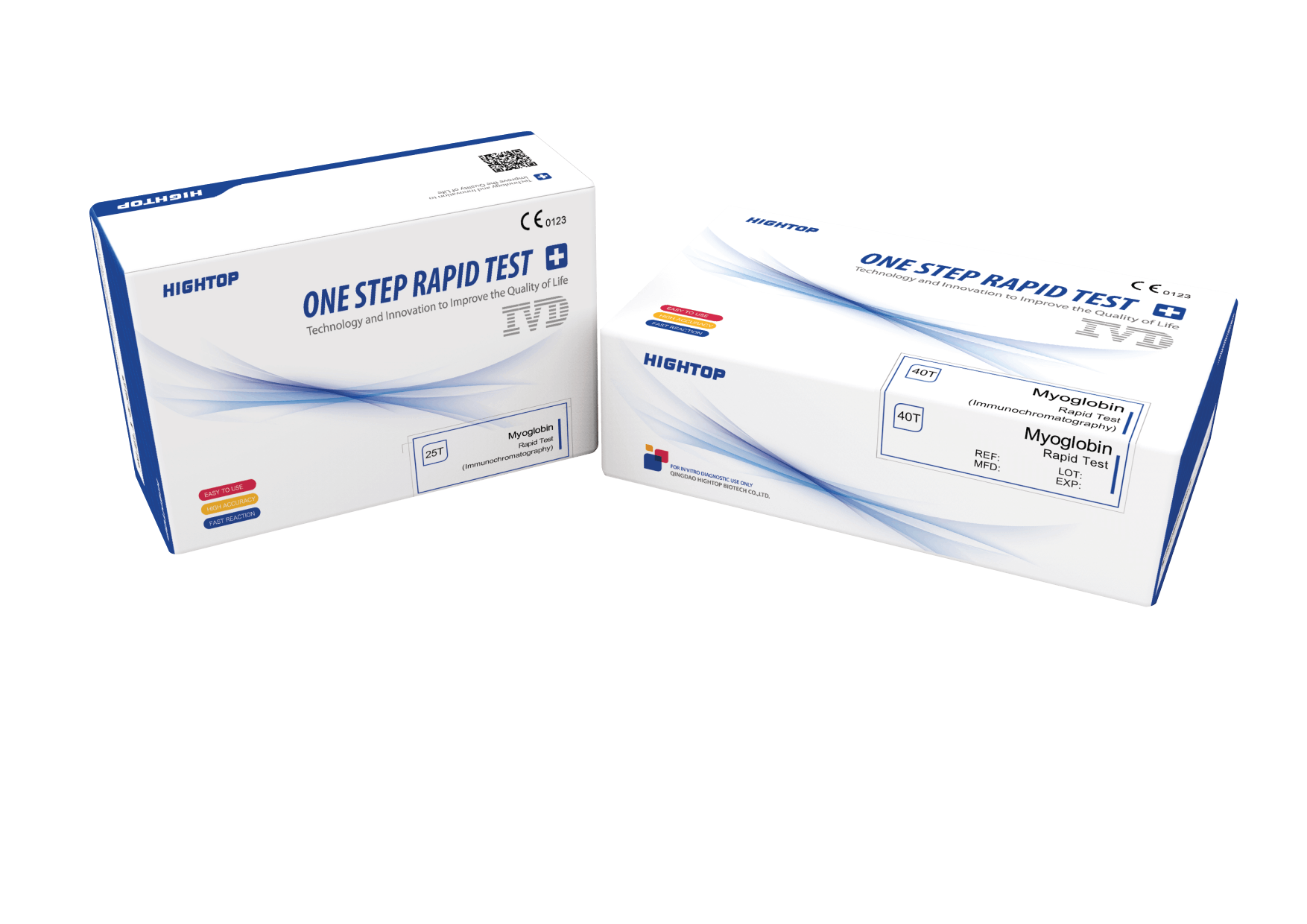Buy Cardiovascular Tests
At OdemShop, we offer a variety of tests for monitoring cardiovascular health. From Troponin to D-Dimer tests, our products help detect and monitor heart diseases early.
The Importance of Cardiovascular Tests for Diagnosis
Cardiovascular tests are an essential part of medical diagnosis and help evaluate patient health and identify potential diseases. Tests such as D dimer, myoglobin, CK-MB, troponin, NT-proBNP, and microalbumin tests check the general health of the heart as well as other organs to detect possible abnormalities or diseases. Thanks to these tests, diseases can be detected and treated at an early stage, which can improve the quality of life and life expectancy of those affected. Therefore, it is important that cardiovascular tests are performed regularly to enable early diagnosis and treatment of diseases.
What are Cardiovascular Tests?
Cardiovascular tests are important diagnostic procedures used to evaluate an individual's cardiovascular health and identify risk factors for cardiovascular disease, including coronary heart disease and heart attack.
The most common tests include blood pressure measurements and blood tests. Blood pressure, particularly systolic blood pressure, is a key indicator of cardiovascular disease risk. High blood pressure or hypertension is an important risk factor for developing coronary heart disease. Therefore, regular control of blood pressure and, if necessary, adjustment of blood pressure by means of certain medications is an important part of heart disease prevention.
Blood tests can help determine the amount of cholesterol in the blood. Elevated levels of cholesterol in the blood lead to deposits called plaques in the arteries, which increases the risk of events such as a heart attack.
Age and gender are also important risk factors that cannot be influenced. The risk for heart attacks increases with age, and men have a higher risk than women.
Other tests may include imaging to determine the presence and extent of plaques in the arteries, or stress tests to assess how the heart responds during physical exertion.
However, all of these tests and their results must be considered in the context of the individual patient and his or her existing medical conditions. It is important for healthcare professionals to interpret test results and create an individualized treatment plan to minimize the risk of cardiovascular disease. New medications and therapies can help effectively reduce the risk of heart disease.
Advantages of the Tests
The tests can help identify potential problems early, which can lead to early treatment. They can also help rule out certain diseases, and they can help improve medical care. Tests can also help reduce the risk of a disease or health condition and can help improve the quality of life.
Cardiovascular tests such as D-dimers, myoglobin, and CK-MB provide a number of cardiovascular benefits. These tests can help assess the current health of the heart, which is essential for preventive care and reduces future risks associated with heart disease.
Here are some important benefits these tests offer:
Cardiovascular benefits:
- Detecting signs of coronary artery disease, heart failure, or arrhythmia.
- Monitoring the effectiveness of medications used to treat certain heart conditions.
Heart health benefits:
- Assessing risk factors associated with stroke or other forms of cardiac arrest.
- Assessing changes in blood pressure over time to detect potential problems early.
Risk assessment benefits:
- Identify areas where behavioral changes may be beneficial to reduce future risks for developing cardiovascular complications.
- Identify an individual's overall risk profile to inform better healthcare decisions and strategies.
Prevention benefits:
- Helps physicians detect silent symptoms, such as irregular heartbeat, before they become severe.
- Provides valuable information about how the body responds to exercise and stress levels to adjust appropriate treatments.
Medication Side Effects Benefits:
- Recognize potential side effects of prescribed medications that can be harmful if left untreated. Such reactions may include elevated liver enzymes, elevated potassium levels, or abnormal cholesterol levels that require further evaluation by medical professionals.
These tests also allow physicians to make informed decisions about prescribing medications based on the specific needs of their patients, taking into account existing pre-existing conditions or allergies that may affect efficacy or safety considerations when prescribing medications. By providing comprehensive insight into cardiovascular health status, this type of screening provides valuable data for both practitioners and patients to manage their respective cardiomental health - ultimately leading to improved quality of life outcomes!
Types of Cardiovascular Tests
There are several types of tests that are used to monitor the function of the cardiovascular system. These include:
- Electrocardiogram (ECG): This test measures the electrical activity of the heart.
- Echocardiogram (ECHO): This test uses ultrasound waves to examine the heart and evaluate its function.
- Stress Test: This test measures how the heart responds to physical exertion.
- Cardiac catheterization: This test involves inserting a catheter into an artery to examine heart function and blood flow.
- Cardiac CT: This test uses computed tomography to examine and evaluate the heart.
These tests also allow physicians to make informed decisions about prescribing medications based on the specific needs of their patients, taking into account existing pre-existing conditions or allergies that may affect efficacy or safety considerations when prescribing medications. By providing comprehensive insight into cardiovascular health status, this type of screening provides valuable data for both practitioners and patients to manage their respective cardiomental health - ultimately leading to improved quality of life outcomes!
Types of Cardiovascular Tests
There are several types of tests that are used to monitor the function of the cardiovascular system. These include:
- Electrocardiogram (ECG): This test measures the electrical activity of the heart.
- Echocardiogram (ECHO): This test uses ultrasound waves to examine the heart and evaluate its function.
- Stress Test: This test measures how the heart responds to physical exertion.
- Cardiac catheterization: This test involves inserting a catheter into an artery to examine heart function and blood flow.
- Cardiac CT: This test uses computed tomography to examine and evaluate the heart.
The importance of cardiovascular testing is undeniable. From simple electrocardiograms (cardiac ECG) to invasive procedures such as myocardial biopsy (myocardial biopsy), stress echocardiography (stress echocardiography), thoracic angiography (thoracic angiography), and coronary angiography (coronary angiography), a variety of tests are available to check heart health and diagnose cardiac disease.
Each test helps doctors identify the cause of any symptoms or abnormalities so they can begin treatment quickly and effectively. For example, an EKG can detect irregular heart rhythms that may be caused by arrhythmias, while a myocardial biopsy can reveal whether muscle damage has occurred due to a previous infection or other medical condition. Stress echocardiography is used to measure how well the heart can pump blood during physical exertion, which can help determine if there is inadequate blood flow in certain areas of the body. Finally, imaging techniques such as thoracic angiography and coronary angiography can identify blocked or narrowed arteries that can lead to serious complications such as stroke or heart attack.
From diagnosis to prevention, these tests provide valuable insight into the well-being of our hearts - both when all is going well and with timely intervention when something is not quite right. With preparation crucial before any type of cardiac exam, let's now look at what to do before the test.
Preparation for Testing
Preparation for cardiovascular testing is equally important to ensure reliable results and safe testing. There are several steps the patient should take before testing:
- The patient should tell their doctor about any medications they take regularly. This will help the doctor choose the right test for the case and minimize the risk of complications during the testing session.
- Prior to some tests, it may be necessary to refuse certain foods or liquids. The patient should be informed about this issue in advance.
- In some cases, the physician or other healthcare professional may provide special instructions, such as special breathing training in the case of a stress test.
It is important that the patient receives and understands accurate information about each step of the test - from preparation to the actual performance of the test - so that he or she can participate effectively in the process and the results are not compromised. In this way, potential risks of injury as well as sources of error can be eliminated. With good understanding and adherence to all instructions, each patient can complete the type of test that best suits them. With that out of the way, we move on to the next phase - begin the test preparation process!
Test Procedure
Cardiovascular testing is an important component of healthcare and provides life-saving information for both physicians and patients. Like the beating heart that drives it all, testing procedures can be both complex and precise - an amazing phenomenon. To better understand this process, let's look at what kind of testing is available:
| Test | Procedure | Type |
|---|---|---|
| Cardiac catheterization | Insertion of a catheter into the arteries | Invasive |
| EKG testing | Electrodes on the chest of the patient | Non invasive |
| Echocardiography | Ultrasound imaging of the heart | Non invasive |
| Cardiac CT | CT scan for detailed analyses | Invasive |
| Stress Testing | Monitoring the pulse during activity | Non invasive |
As you can see from the table above, there are both invasive and non-invasive methods of performing cardiovascular testing. Which approach is used depends on the severity of the condition being tested, as well as factors such as risk tolerance and cost-effectiveness. No matter which method is chosen by your physician, expect thoroughness and precision in every step of the test. From taking vital signs to obtaining samples or images, each part plays its part in determining how best to proceed with treatment.
What to Expect After Testing?
Depending on what type of test was performed, the results may vary. If a blood test was performed, the results may include a number of different values that reflect the patient's health status. If a psychological test was performed, the results may include a detailed psychological profile of the patient. After the results are obtained, the doctor or psychologist can create a treatment plan based on the results.
Interpreting Test Results
Interpreting test results can be like solving a medical puzzle. After all the pieces are in place, they can tell us whether or not someone has underlying heart disease. Doctors use these results to create treatment plans and understand potential complications that may arise from taking medications. In other words, it is essential for physicians to have reliable readings from tests such as D-dimer, myoglobin, CK-MB, etc. in order to properly diagnose and treat their patients.
For example, variations in myoglobin levels can indicate whether a patient is likely to develop serious side effects from certain medications. This knowledge gives physicians the ability to make informed decisions about the best course of treatment for each individual case.
From collecting data on changes over time to assessing risk factors associated with specific treatments, deciphering test results plays a critical role in personalizing care and improving outcomes for patients with cardiovascular disease. It provides invaluable insight into how different therapies affect them at their physiological level, allowing health professionals to tailor their recommendations accordingly.
Treatment Options Based on Results
The results of these tests help the physician determine the severity of the disease, as well as assess the risk of future complications. There are several testing methods to do this, such as the D-dimer test, myoglobin test, CK-MB (creatinine kinase) test, and electrocardiogram (ECG). After the results are in, the doctor will make an individualized treatment plan based on the results of each test and the patient's overall health. This plan may include medications, but may also recommend behavioral guidelines such as a change in diet or regular exercise. In addition, a patient may be advised to make overall lifestyle changes - particularly reducing or eliminating risk factors - which is often seen as key to preventing further problems. To examine the long-term prospects that follow such plans and whether they can influence the occurrence of complications, it is important to follow the measures taken carefully.
Risk Factors and Complications
Risks exist for people who have the following conditions: Diabetes, hypertension, obesity, sleep apnea, blood clotting disorders, and cardiovascular disease. Certain medications may also increase the risk of needing bariatric surgery. Complications associated with bariatric surgery may include: Bowel obstruction, gastrointestinal bleeding, infections, nutrient deficiencies, gallstones, and gastrointestinal perforations. Possible long-term complications include dumping syndrome and the need for revision or repeat surgery. Various tests, such as D-dimer, myoglobin, and CK-MB, are used to assess the risk for cardiovascular disease. The results of these tests help determine if further action needs to be taken to prevent health problems. It is important to know one's risk factors and understand the consequences of different test values to ensure good heart health.
Prognosis and Long-term Outlook
The prognosis for patients with rare diseases is difficult to predict. Most diseases are chronic, meaning that the patient's condition may change over time. Some patients may achieve a complete cure, while others may have to live with symptoms for the rest of their lives. It is important to be aware of the possible outcomes of a rare disease in order to receive the best possible care. It is important to understand that cardiovascular tests can have a prognostic and long-term outlook. They help physicians diagnose heart disease and create a treatment plan for medical care. They can be used to derive a good prognosis at first glance. This table shows some typical signs of a positive prognosis:
| Indicators | Meaning |
|---|---|
| CK-MB | Low risk of severe myocardial infarction or other complications |
| Myoglobin | There is no acute muscle damage |
| D dimer | Indicates whether it is a thrombosis or not |
These tests provide information about the patient's condition and often determine the next steps in their treating organization. Using these tests as a screening tool can identify people with potentially life-threatening conditions in a timely manner and provide them with immediate access to necessary care. Using such tests, doctors can also find out if further testing is needed to get more information about the patient's health. This helps the physician develop better decision-making skills at the right time. Overall, regular cardiovascular testing offers significant benefits in terms of prevention and early detection of heart-related diseases, as well as their potential consequences for the patient's long-term outlook.
Conclusion
In conclusion, cardiovascular disease testing is critical to ensuring that patients receive the best possible treatment. Through tests such as ECG, echocardiography, cardiac CT, cardiac MRI, and exercise testing, we can more effectively monitor the function of the cardiovascular system. Although there are risks with these tests, they are outweighed by the potential benefits in improving treatment outcomes for patients.
The key point here is that testing to detect heart disease and circulatory disease is essential for proper diagnosis and treatment. As healthcare providers, we must continue to work to create a healthier future by providing our patients with timely and accurate diagnosis through thorough testing.
Wholesale cardiovascular testing
There are many retailers that offer cardiovascular testing, but not all are of the same quality. To ensure that you get a reliable and accurate result, it is important to choose a retailer that offers a wide range of diagnostic tools and has a high customer rating
At OdemShop, we offer a wide range of wholesale and specialty diagnostic tools. Our online store is easy to use and offers a wide range of products, including cardiovascular tests. We also offer secure and convenient ordering and delivery directly to your home or practice.
With our cardiovascular tests, you can be sure you're getting the best possible diagnostics for your patients. At Odemshop, we stand behind our products and offer a 100% satisfaction guarantee. Buy your cardiovascular tests now at Odemshop and experience the difference a reliable and accurate test makes.
Here are some of our rapid tests for cardiovascular monitoring :
FAQ's
What are cardiovascular tests?
Cardiovascular tests are medical tests that evaluate a person's cardiovascular health.
Why are cardiovascular tests performed?
Cardiovascular tests are usually performed to assess the risk of cardiovascular disease and to monitor existing conditions.
What are the different types of cardiovascular tests?
There are many different types of cardiovascular tests, including electrocardiograms (ECGs), echocardiograms, exercise and stress tests, blood pressure measurements, and blood tests.
How are cardiovascular tests performed?
The different tests are performed in different ways. For example, an EKG is performed by placing electrodes on the patient's chest, while an echocardiogram requires an ultrasound examination of the heart.
How often should I have cardiovascular tests done?
The frequency depends on the individual's risk assessment. In general, it is recommended to have cardiovascular testing regularly after a certain age.
Are cardiovascular tests painful?
Most tests are painless or involve only minor discomfort.
How should patients prepare for cardiovascular tests?
Preparation depends on the particular test. However, it is usually recommended not to take certain medications or avoid certain foods before the test.
What happens if a cardiovascular test shows abnormalities?
If a test shows abnormalities, further tests are usually performed to determine the cause and initiate appropriate treatment.
Are cardiovascular tests suitable for everyone?
In general, cardiovascular tests are appropriate for most people. However, in some cases, certain medical conditions or medications may limit whether a test can be performed.
How important is regular cardiovascular testing?
Regular cardiovascular testing is important to reduce the risk of cardiovascular disease and to detect and treat existing conditions in a timely manner.
You might also be interested in

D-dimer and D-dimer Levels – An Overview
D-dimer and D dimer levels are an important part of the diagnostic process for identifying blood clots. They can help us predict and prevent...
View Post
NT-Pro-BNP (B-type Natriuretic Peptide) – A Comprehensive Overview
NT-Pro-BNP (B-type Natriuretic Peptide) is a protein that helps in the diagnosis of cardiac dysfunction. It can be used as a test substance to check...
View Post
CK MB and the CK MB Value: Everything You Need to Know
As a medical indicator of heart disease and muscle breakdown, the CK MB value is an important test performed when heart attack, myocarditis or...
View Post
